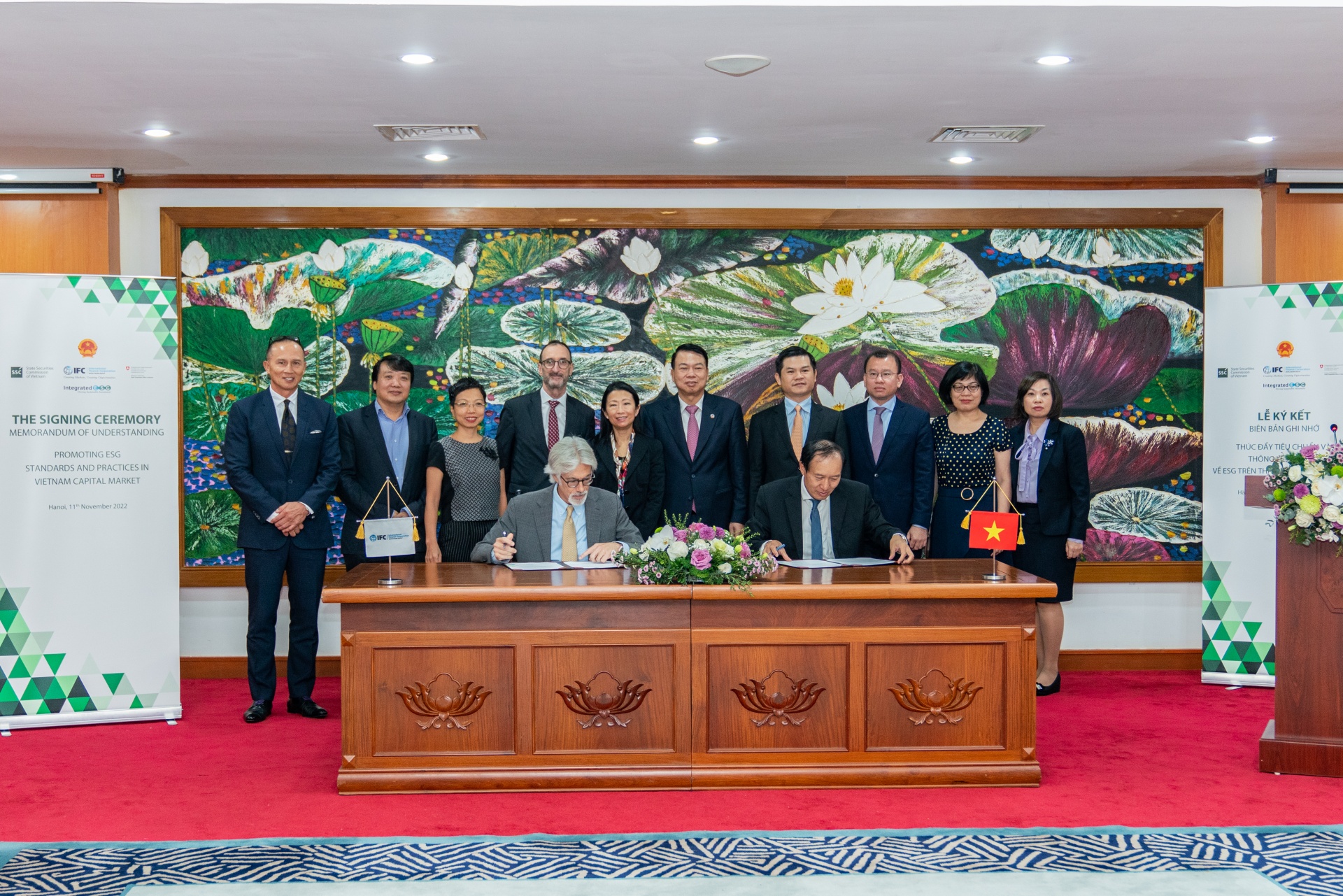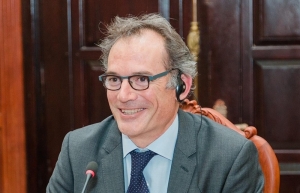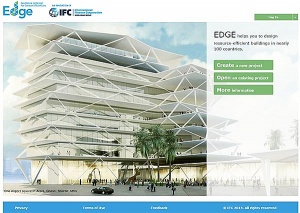Boosting green finance for a low-carbon economy in Vietnam
A new MoU between the parties with the State Securities Commission of Vietnam (SSC), signed on November 11, will support government efforts to leverage the capital market to tackle climate change through green and sustainable finance.
With IFC’s assistance, SSC will promote the adoption of environmental, social, and governance (ESG) standards and practices and enforce requirements among market players.
This will help strengthen the sustainable finance framework, encouraging innovative financial products such as green bonds, transition bonds, and sustainability-linked bonds to attract international investors looking for sustainable assets.
 |
| MoU signing to promote ESG standards and practices in Vietnam's capital market |
“Capital markets have been playing a big role to play in Vietnam’s transition to a climate-resilient and low-carbon economy, helping mobilise green capital,” said Nguyen Duc Chi, Deputy Minister of Finance.
Pham Hong Son, vice chairman of the SSC emphasised, “Promoting green and sustainable finance is a long-term priority for the SSC. The IFC’s continued efforts to encourage the adoption of ESG standards and practices among public companies will help scale up green finance, creating a sustainable capital market in Vietnam.”
These efforts are part of a new initiative between IFC and SECO – the integrated ESG programme – to help regulators, investors, companies, and partners in Vietnam manage ESG risks and bottlenecks by promoting effective decision-making and risk management.
Werner Gruber, head of the Swiss Cooperation Office in Vietnam assessed, "Strengthening ESG capacity is critical to achieving the climate commitments and the Sustainable Development Goals. Failure to consider ESG risks can lead to poor and unsustainable investment decisions. Our work with the IFC aims to improve ESG standards and practices in Vietnam to guide financial flows towards sustainable investments for a more inclusive and sustainable economic development.”
Using IFC’s ESG standards – its Performance Standards and Corporate Governance Methodology – the integrated ESG approach addresses critical ESG topics, including effective environmental and social risk management and systems, disclosure and transparency, climate risk and mitigation, and gender.
Kim-See Lim, IFC regional director for East Asia and Pacific noted, “Greening the capital markets with a focus on improved ESG standards is a priority as Vietnam aims to unlock private investment to achieve its twin goals of becoming a high-income and carbon-neutral economy by 2050. The IFC is excited to deepen its partnership with SSC and SECO to help spur a conducive environment for private sector climate investment, which is vital for supporting sustainable and resilient growth in Vietnam.”
 | ESG promises must be backed up by genuine progress The importance of environmental, social, and governance criteria (ESG) factors to businesses has been extensively acknowledged. Andrew Chan, Sustainability Strategy & Transformation leader at PwC Asia-Pacific’s Sustainability Centre of Excellence, explained to VIR’s Celine Luu how to address ESG concerns across a broad spectrum of industries. |
 | Stepping up ESG for socioeconomic gains Both businesses and financial institutions in Vietnam are stepping up their journey in environmental, social, and governance (ESG) criteria, and reinforcing commitments to foster sustainability. A fresh PwC ESG Readiness Report for 2022 shows significantly upbeat figures about how businesses in Vietnam are approaching these matters. |
 | Climate core of IFC investment in Vietnam During his visit last week to Vietnam, Alfonso Garcia Mora, International Finance Corporation’s vice president for Asia-Pacific, talked with VIR’s Linh Le about Vietnam’s transition to a private sector-led low-carbon economic growth model and the business opportunities that this shift could generate. |
 | IFC to support Vietnam's transition to a low-carbon economic growth model The International Finance Corporation (IFC) – a member of the World Bank Group – announced on May 11 that it will support Vietnam to transit to a low-carbon economic growth model. |
What the stars mean:
★ Poor ★ ★ Promising ★★★ Good ★★★★ Very good ★★★★★ Exceptional
 Tag:
Tag:
Related Contents
Latest News
More News
- Vietnamese businesses diversify amid global trade shifts (February 03, 2026 | 17:18)
- Consumer finance sector posts sharp profit growth (February 03, 2026 | 13:05)
- Vietnam and US to launch sixth trade negotiation round (January 30, 2026 | 15:19)
- NAB Innovation Centre underscores Vietnam’s appeal for tech investment (January 30, 2026 | 11:16)
- Vietnam moves towards market-based fuel management with E10 rollout (January 30, 2026 | 11:10)
- Vietnam startup funding enters a period of capital reset (January 30, 2026 | 11:06)
- Vietnam strengthens public debt management with World Bank and IMF (January 30, 2026 | 11:00)
- PM inspects APEC 2027 project progress in An Giang province (January 29, 2026 | 09:00)
- Vietnam among the world’s top 15 trading nations (January 28, 2026 | 17:12)
- Vietnam accelerates preparations for arbitration centre linked to new financial hub (January 28, 2026 | 17:09)






















 Mobile Version
Mobile Version